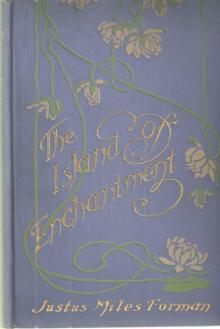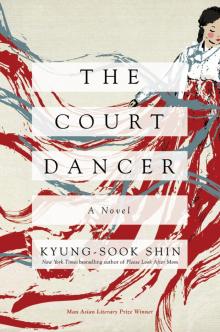The Island of Enchantment


Author: Justus Miles Forman
Category: Fiction
Published: 2014
Series:
View: 166
Read OnlineThis is a short work of historical fiction. From the beginning: “Evil tidings have their own trick of spreading abroad. You cannot bury them. The news which had come secretly to Venice was known from the Giudecca to Madonna dell\'Orto in two hours. Before noon it was in Murano. Young Zuan Gradenigo, making his way on foot from the crowded Merceria into the Piazza di San Marco, ran upon his friend, the young German captain, whom men called Il Lupo—his name was Wölfart—and learned, what almost every other man in the city already knew, how Lewis of Hungary, taking excuse of a merchant ship looted in Venetian waters, was on his way to a second invasion, and had given over the Dalmatian towns to the ban of Bosnia to ravage. The two men were still eagerly discussing the matter and its probable outcome, half an hour later, standing beside one of the gayly painted booths which, at this time—the spring of 1355—were clustered about the foot of the great Campanile, when a servant in the livery of the doge touched young Zuan\'s arm and, in a low tone, gave him a message. Gradenigo turned back to the German. "My uncle wishes to see me at once in the palace," he said. "If you are not pressed, go to my house and wait for me there. I may have important news for you." Then, with a parting wave of the hand, he went quickly across the Piazzetta and under the gateway to the right of St. Mark\'s. At the head of the great stair two men were awaiting him, and they led him at once through a narrow passage with secret sliding-doors to an inner cabinet of the private apartments of the newly elected doge, his uncle, Giovanni Gradenigo. The doge sat alone in a great carven chair before a table which was littered with papers and with maps and with writing-materials. From a high window at one side colored beams of light slanted down and rested in crimson and blue splashes upon the dark oak of the table and what lay there, and upon the rich velvet of the doge\'s robe, and upon his peculiar cap of office. He was not a very old man, but he was far from strong. Indeed, even at this time he was slowly wasting away with the disease which carried him off a year later, but as he sat there, bowed before the table, he looked old and very worn and tired. His face had no color at all. It was like a dead man\'s face—cold and damp. And yet, although he was ill and seemed quite unfit for labors or duties of any sort, he was in reality an unusually keen and shrewd man, capable of unremitting toil. There burned somewhere within the shrunken, pallid body an astonishingly fierce flame of life. He had been elected to office hard upon the Faliero catastrophe partly because his name was one of the very greatest in Venice—two others of his house had worn the cap and ring within the century past—but chiefly because his sympathies were as remote as possible from the liberal views of the poor old man who had preceded him. He was patrician before all else, and fiercely tenacious of patrician rights—fiercely proud of his name and possessions. He did not move as his nephew entered the room, only his pale eyes rose slowly to the young man\'s face and as slowly dropped again to the table before him. Young Zuan pulled forward one of the heavy, uncomfortable chairs of carved wood and sat down in it. He was wondering very busily what his uncle wanted of him, but he knew the old man too well to ask questions. Besides that, it would not have been respectful. Presently the pale eyes rose again. "You have—heard?" asked the doge, in his thin voice.”
 Journey to the Centre of the Earth
Journey to the Centre of the Earth Why I Write
Why I Write Desperate Games
Desperate Games Seeking Our Destiny : Nelson Brothers'
Seeking Our Destiny : Nelson Brothers' The Last Goodbye
The Last Goodbye The Court Dancer
The Court Dancer Justice
Justice Silencing the Siren
Silencing the Siren